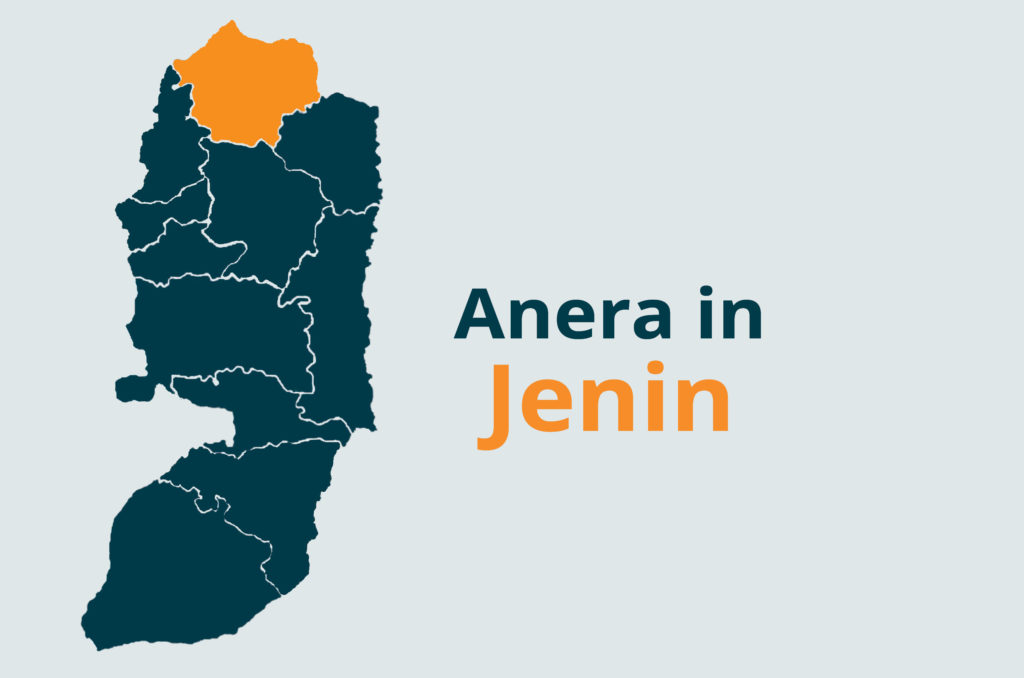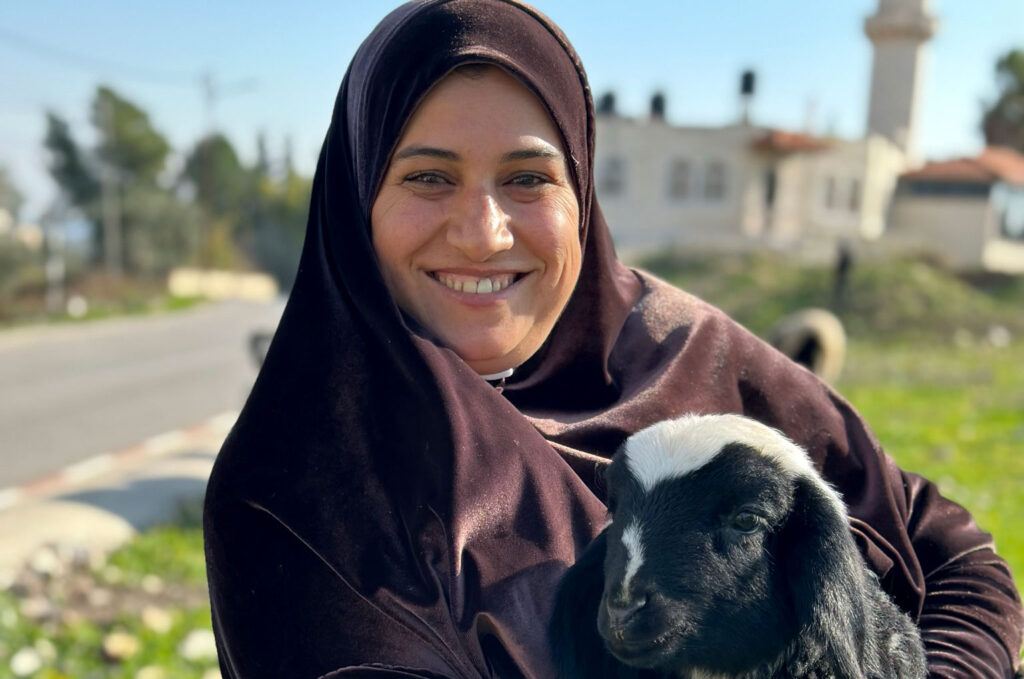Oct, 2010
The dingy basement room was constructed in 1972 with miserable ventilation and light.
Worn-out, outdated computers are stacked in a monotonous line alongside the moldy crumbling walls. This was the room in Kufur Thulth Secondary Girls School, located southeast of Qalqilia, where hundreds of high school girls used to squeeze in together to learn about computers.
“Seeing is believing,” said the headmistress Ayda Mwafi as she tried to describe the miserable condition of the old computer lab.
“The computers were so slow and old that they would shut down on us in the middle of a lesson. We were not learning about computers properly but were rather seizing vague snippets of information before the computers would shut down on us again,” explains 15-year-old Iman Jamal, who aspires to become a computer engineer.
Iman’s eyes lit up and so did her classmates when they arrived at school on September 20th and saw the new, brightly-lit computer room and what it contained: four rows of 17 state-of-the-art personal computers, two printers, an LCD projector with its own white screen, networking equipment with a switch, infrastructure and cabling, and a two-year ADSL Internet subscription.
The equipment was all donated by Anera, in recognition of the school’s achievements and its students’ exceptional performance at national level in general secondary examinations. Anera staff working on the school’s renovation project had quickly realized that building new rooms for the school was not enough. They needed to be furnished with proper equipment and materials. So Anera offered to supply the computer equipment and the municipality generously provided the furniture such as chairs, desks, whiteboard and drapes.
With a budget of $20,000, Anera has invested in the future of 392 students. The headmistress says she is eternally grateful. “This has surpassed our expectations. We were simply neglected and now we have all the essentials we need.”
Anera carried out the school’s renovation with $250,000 from USAID under the Emergency Water Sanitation and Other Infrastructure Program (EWASII) and a contribution from the municipality. The newly added third floor includes six classrooms as well as the computer room, connecting staircases and corridors for nearly 5,000 sqare feet of space. Anera also upgraded the older part of the school with fresh paint and new doors and windows. There also are now 12 benches and a sun-shade for the school yard.
“With the extra space, we were able to move the teachers’ room, which used to accommodate 20 teachers in a space that was only 30 square meters [322 square feet], and the counselor’s room which was only eight square meters [86 square feet], to a much larger space. The corridors and staircases are not as crowded and we were able to admit 92 new students to the school,” explained the smiling headmistress.
But it’s the computer room that has captured everyone’s attention. Young Iman is currently getting ready to compete in her school’s Science Olympics next year and says she is confident she will qualify to compete at a national level. Iman’s family owns a personal computer at home, but it is outdated and slow and not connected to the Internet. Her seven siblings take turns at it, which leaves Iman with little time to develop her skills. For Iman, the school’s computer lab now is a like a newfound treasure.
Iman’s classmate and friend Ola Abdulqader is one of the top students in her class and takes the computer class very seriously. In the past, Ola did not think much of the computer classes she took in the school basement, instead she diligently practiced on her personal computer at home.
“For the past three years when we had a research project due, I couldn’t rely on the old computers at school,” Ola explains. “I had to ask my brothers to get me information from the Internet centers in the village and they never got me the exact information I wanted.” Fortunately, Ola does not have to worry now about getting what she needs for her research. She has access to the Internet on the school’s new computers. She says the computer lab is reliable, comfortable and accessible. Now Ola is eager to learn new programs.
Headmistress Ayda Mwafi echoes that enthusiasm. “We are so much more reliant on computers in this information revolution. The personal computer has become the library, notebook and pen of any person, let alone any student,” she says. “It is indispensable.”


